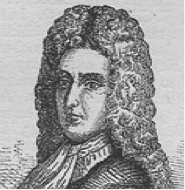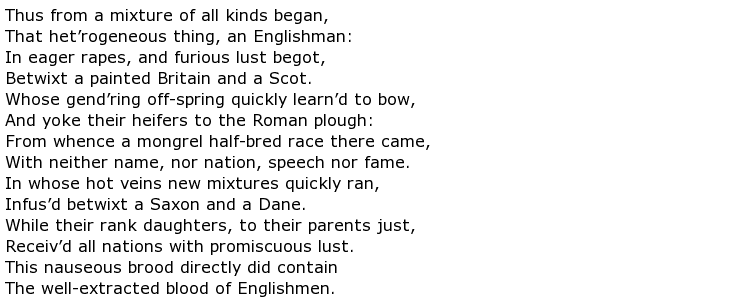 Daniel Defoe was an influential man whose life spanned the 17th and 18th centuries. He was responsible for a huge output of written work. He wrote poetry, novels and, in his famous travelogue covering the whole of Great Britain, he wrote a masterpiece that captured the essence of the British Isles in great detail. He was also a journalist when such an occupation didn’t really exist and a great pamphleteer, pronouncing on subjects as diverse as politics, religion, the family and supernatural beliefs. He was also a great economist and trader and his reports and studies were read and respected by all those who took an interest in commerce and finance.
Daniel Defoe was an influential man whose life spanned the 17th and 18th centuries. He was responsible for a huge output of written work. He wrote poetry, novels and, in his famous travelogue covering the whole of Great Britain, he wrote a masterpiece that captured the essence of the British Isles in great detail. He was also a journalist when such an occupation didn’t really exist and a great pamphleteer, pronouncing on subjects as diverse as politics, religion, the family and supernatural beliefs. He was also a great economist and trader and his reports and studies were read and respected by all those who took an interest in commerce and finance.
He was born Daniel Foe, adopting the more aristocratic sounding “Defoe” later in life. He was born around1659, in the parish of St Giles Cripplegate, in London. His father was a tradesman, in the tallow chandlery business, and he was born at a tumultuous time in English history. In his first few years of life there was the Great Fire of London, Great Plague and an attack by a Dutch fleet of ships on the mainland of England.
These were times of great intolerance in religion and Defoe’s father hoped that his son might become a Presbyterian minister but Daniel had other ideas. He had grand ideas to make money in various trading areas such as woollen goods and wine, and he achieved some success along with a number of failures. He seemed to be forever in debt and found himself imprisoned more than once because of that. One unusual line that he followed was the acquisition of civet cats which produce secretions from a gland that can be used in the manufacture of perfume.
At the age of 24 he was married and the dowry he received lifted him out of debt, at least temporarily. It was a good marriage lasting some 50 years and producing six surviving children. He was constantly on the lookout for new business opportunities and he willingly acted as a spy for King William III on several occasions, this bringing him many opportunities for travel across Britain and continental Europe. But he always found time to write and had a good brain for economic improvement projects which he set down in writing and published regularly. He wrote a famous poem in defence of the King called The True-Born Englishman in1701, this being a heartfelt plea that his majesty should be allowed the right to raise an army despite the recently agreed Treaty of Ryswick which disarmed the whole of Europe following many years of war. It’s a long piece and here is the first verse:

The early 18th century was, of course, a time of great political activity regarding the Act of Union between England and Scotland and Defoe was engaged to write journalistic pieces in a publication called The Review which became, effectively, the voice of those in the Government who were in favour of the Union. He was required to get amongst the Scottish people to test opinions and witnessed a number of demonstrations against the English. Defoe wrote that:

He managed to keep his head down while exposed to constant danger and a leading Unionist wrote, some years later that Defoe was:

Later in his life Defoe published his famous novels Robinson Crusoe and Moll Flanders which are still part of educational curriculums even today. Perhaps his greatest work though was A Tour Thro’ The Whole Island of Great Britain, Divided into Circuits or Journies (1724–27). This was an incredible snapshot of British working life just as the Industrial Revolution was about to get underway.
Daniel Defoe died on 24 April 1731, aged 71, in London.

